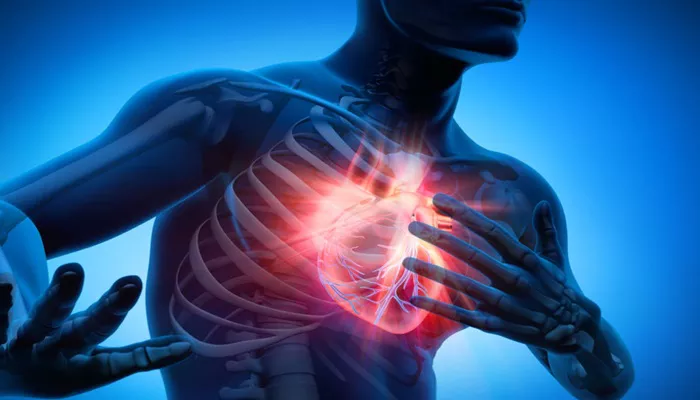Premature heart disease refers to cardiovascular conditions that develop at an earlier age than typically expected. This can include a range of issues, such as coronary artery disease, heart attack, or heart failure. Recognizing the symptoms of premature heart disease is crucial for early diagnosis and intervention. This article will discuss six obvious symptoms of premature heart disease, helping individuals understand what to look for and when to seek medical attention.
What Is Premature Heart Disease?
Premature heart disease generally affects individuals under the age of 55. It can result from a combination of genetic factors, lifestyle choices, and underlying health conditions. Common risk factors include high blood pressure, high cholesterol, diabetes, obesity, smoking, and a sedentary lifestyle.
The consequences of premature heart disease can be severe, leading to heart attacks, heart failure, and other serious complications. Early recognition of symptoms can significantly improve outcomes and reduce the risk of severe cardiovascular events.
The 6 Signs of Premature Heart Disease
1. Chest Pain or Discomfort
One of the most common symptoms associated with premature heart disease is chest pain or discomfort. This symptom can manifest in various forms, including:
Pressure or Tightness: Many individuals describe a feeling of pressure or tightness in the chest, often likened to having a heavy weight placed on it.
Sharp or Stabbing Pain: Some may experience sharp pain that can be fleeting or persistent.
Radiating Pain: The discomfort may radiate to other areas, such as the arms, back, neck, jaw, or stomach.
Chest pain can be a warning sign of a heart attack or angina, which occurs when the heart muscle does not receive enough blood. If you experience chest pain, especially if it is accompanied by shortness of breath, sweating, or nausea, seek medical attention immediately.
see also: What Are the Two Types of Cardiac Catheterization?
2. Shortness of Breath
Shortness of breath, or dyspnea, is another significant symptom of premature heart disease. This symptom can occur during physical activity or even at rest.
Exertional Dyspnea: Many individuals may notice that they become easily winded during activities that previously did not cause any issues, such as climbing stairs or walking briskly.
Orthopnea: Some may experience difficulty breathing when lying flat, leading to the need to prop themselves up with pillows at night.
Paroxysmal Nocturnal Dyspnea: This refers to sudden episodes of shortness of breath that occur during sleep, often waking individuals from their sleep.
Shortness of breath can indicate that the heart is struggling to pump blood effectively, which may be a sign of heart failure or other cardiovascular issues.
3. Fatigue and Weakness
Unexplained fatigue and weakness are common symptoms of premature heart disease. Individuals may notice a significant decrease in their energy levels, making daily activities feel more challenging.
Chronic Fatigue: Unlike typical tiredness, this fatigue does not improve with rest. It may be accompanied by a general sense of malaise.
Reduced Exercise Tolerance: Individuals may find it difficult to engage in physical activities they once enjoyed, such as jogging or playing sports.
Fatigue can result from the heart’s inability to pump blood efficiently, leading to reduced oxygen delivery to the body’s tissues. This symptom should not be ignored, especially if it occurs alongside other cardiovascular symptoms.
4. Heart Palpitations
Heart palpitations are sensations of a racing, fluttering, or pounding heartbeat. While palpitations can occur in healthy individuals, frequent or persistent palpitations may indicate underlying heart problems.
Awareness of Heartbeat: Individuals may become acutely aware of their heartbeat, feeling as though their heart is skipping beats or beating too quickly.
Associated Symptoms: Palpitations may be accompanied by dizziness, lightheadedness, or even fainting in some cases.
Palpitations can be caused by various factors, including anxiety, stress, caffeine, or arrhythmias. If palpitations occur frequently or are associated with other symptoms, it is essential to consult a healthcare provider for further evaluation.
5. Swelling in the Legs, Ankles, or Feet
Swelling, or edema, in the legs, ankles, or feet can be a sign of fluid retention due to heart failure. This occurs when the heart is unable to pump blood effectively, leading to increased pressure in the blood vessels.
Pitting Edema: This type of swelling leaves an indentation when pressure is applied. It can be particularly noticeable in the lower extremities.
Bilateral Swelling: Swelling in both legs or ankles is more common in heart-related conditions, as opposed to unilateral swelling, which may indicate other issues.
Swelling can also be associated with other conditions, such as kidney problems or liver disease. However, when it occurs alongside other cardiovascular symptoms, it may indicate heart failure or other heart-related issues.
6. Dizziness or Lightheadedness
Dizziness or lightheadedness can occur due to reduced blood flow to the brain, often as a result of heart problems.
Feeling Faint: Some individuals may feel as though they are about to faint or may experience episodes of syncope (loss of consciousness).
Balance Issues: Dizziness can also affect balance, making it difficult to stand or walk without feeling unsteady.
Dizziness can be triggered by various factors, including dehydration, low blood pressure, and arrhythmias. If dizziness occurs frequently or is accompanied by other symptoms, it is crucial to seek medical attention.
Conclusion
Recognizing the symptoms of premature heart disease is essential for early detection and intervention. Chest pain, shortness of breath, fatigue, heart palpitations, swelling in the legs, and dizziness are all significant warning signs that should not be ignored. If you or someone you know is experiencing these symptoms, it is important to consult a healthcare provider for a thorough evaluation. Early diagnosis and treatment can significantly improve outcomes and reduce the risk of severe cardiovascular events.

